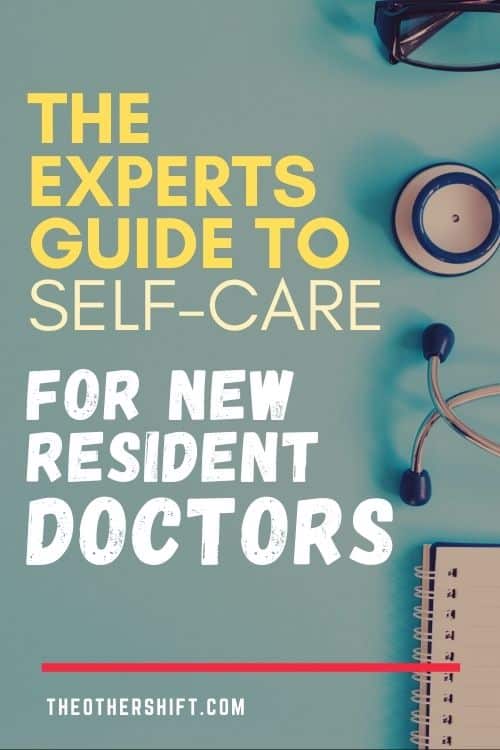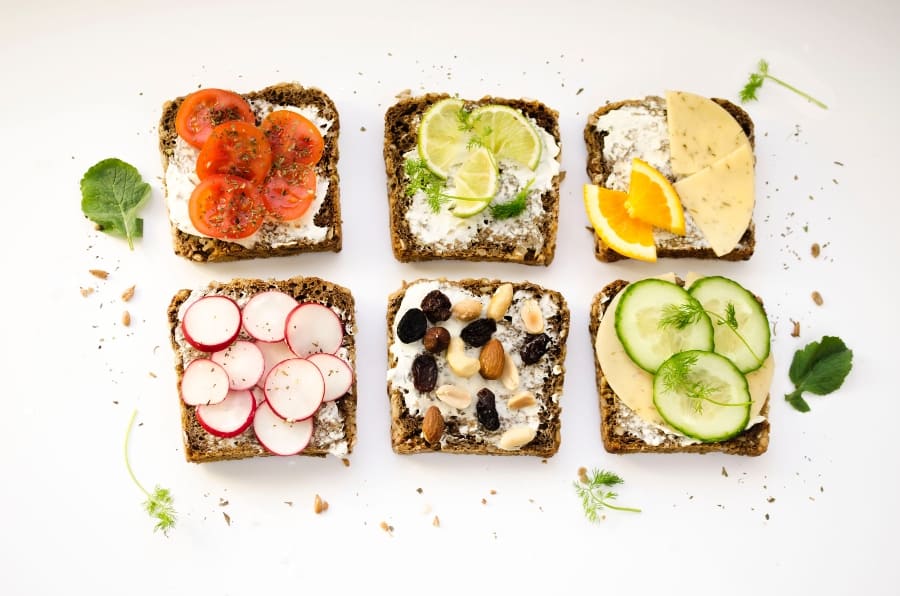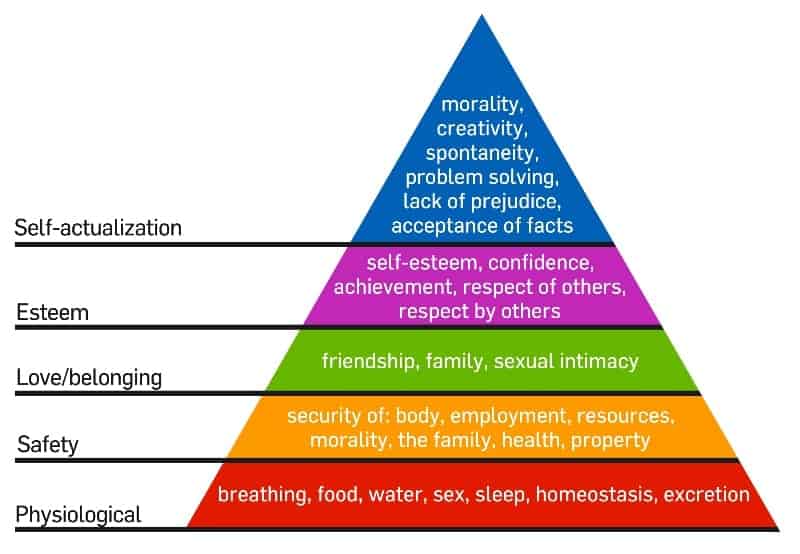Disclosure: This page may contain affiliate links, meaning we receive a commission if you decide to make a purchase through our links, but this is at no additional cost to you. Please read our disclosure and privacy statement for more info.
Finished medical school? Ready to begin residency? Sorry to say but the hard part starts now. Work through the day, stay on call at night, and then work through the next day, hoping to get some sleep in there somewhere. Or not. That beeper can go off just after midnight when your cortisol levels are lowest and you need to do your best. As a new resident doctor, how can you ensure you take care of yourself so that you can take care of your patients too?
When focusing on self-care, new resident doctors should establish a safe and comfortable home environment before commencing work. A balanced diet, adequate sleep, exercise and vitamin D exposure and having positive social outlets should be prioritized despite time pressures.
We sat down with a doctor who’s been practicing for over 20+ years and they were kind enough to share their experiences and important self-care advice for new resident doctors.
So in this next section, we’ll deal with many of the practical aspects of taking care of yourself during residency and beyond. From what I understand as a nurse, and better now after doing this interview; most doctors go through this at some point. Lucky for me, this particular resident managed to come through intact and picked up some valuable pointers along the way. We hope you find something here that places you on the right path to success.
Our question is how to maintain good health and an optimistic attitude while learning and practicing the art and science of medicine. The way to do this is to maintain your basic needs as outlined by Abraham Maslow and his hierarchy of needs: physiological, safety, love and belonging, esteem, and self-actualization. (source) I’ll chat more about this later.
1. Get Familiar With Your Surroundings
This first tip applies to those who have needed to relocate for their residency.
When arriving in a brand new city, you will need to find where to get the necessities, so plan to arrive at you new home a few days early and take plenty of time to get settled in before starting your job. Don’t rush this part if you can help it as the hospital life will be uncertain enough.
You’ll need to unpack all those boxes, find your books and work clothes, get organized and find where to get food and gas before you begin the rigors of work and study. On day one it will help to feel, act, and appear confident in your new role so take the time to get sorted.

2. Healthy Snacks Are A Must
To make good decisions your brain needs good, sustainable fuel so have some tasty, healthful snacks ready to go. Those who spend long hours working tend to replace sleep with food, so have the right kind readily available.
Some luscious fresh fruit is just what the doctor ordered. If you’re lucky enough to have an on-call room with a refrigerator, keep the good stuff near the front where you’ll see it first when you open the refrigerator door. Here are some mighty helpful meal prep tips if you need to up your game in this area.
Remember, if you buy junk food and bring it to work, that’s what you’ll choose if it’s easily available.
If all you get is a room with a bed, then an ice cooler will do nicely or one of those portable ovens on Amazon.
Here are a few great food suggestions you’ll find on this blog;
- Vegan Snacks to Satisfy Any Famished Night Shift Worker
- 10 Healthy Snacks Ideal for Hungry Night Shift Workers
- Energy-Boosting Foods for Night Shift: What To Eat and When

3. Manage Your Weight
And speaking of good nutrition–it’s not just for patients. Staying (or getting) slim and trim will keep you alert and able to handle the stress.
Start each meal with some protein, to keep your insulin levels low. This will prevent your body from making too much fat. (source)
Start with tossing down four almonds before digging into your lunch salad. Salad is never boring when it is filled with colors and textures, so some sliced purple cabbage, chopped romaine, spinach leaves, mushrooms, tangerine pieces, textured veggie protein…you get the idea. Add a little virgin olive oil and balsamic vinegar and live it up.
Here are some other recipes worth a browse – Healthy Meals for Shift Workers (with Recipes and Videos)
In my time as a resident, it wasn’t so much that I was putting on weight, it was maintaining my weight and good nutrition that was the problem. You need fuel to make good decisions so take the time to get this bit right.
4. Surround Yourself With Positive People
When thinking about your social circle, do these people make you smile, laugh and relaxed, or do they make you feel inadequate and bad about yourself?
Research says we adopt behavioral traits from the five people closest to us and whom we see most often. (source) So really think about those you share your time with and ask yourself, “are these the best people for me at this time in my life?”
Questions to consider here;
- Do these people make you feel like your medical skills are not up to scratch? Picking holes in your descicion making instead of supporting you as you grow in your career.
- Do these people stop for a lunch break, even for 10 minutes, or are they compulsively working?
- Is there a competition to see who slept leaset but can still perform their job?
- Are these people ever able to NOT talk about work?
This can be confronting to think about. But often creating some distance between certain friends can be very positive for your mental health providing you room to grow.
5. Wash Your Hands
Remember what you learned about ten ways to spread infection? They’re on the ends of your hands.
Washing your hands between patients keeps both you and the patients safe. (You’ll find that this is particularly important during your pediatric rotation).
Simple things like watching out for carts and fallen paper clips in the hallway can keep you safe from falls too.
You might find your hands become super dry though. To counteract this problem, I use this wonderful hand balm to make it all better. Though I love this, any hand cream will do when applied a few times a day.
6. Get Your Blood Pumping
Now about those endorphins and serotonin. Get some. Dr. Anthony Fauci, busy as he is, finds time to run each day.
Make a deal with a friend and colleague and hold each others’ beepers for an hour a day while you get out and get some physical activity. The fresh air, vitamin D and wonderful feeling of lightness as you remove your collar and leash will do wonders for you.
Some people recommend getting endorphins from spicy foods but watch the possible consequences. If you’re lucky, you might be in a hospital that offers the use of a gym. Take advantage of it.
The video below explores a few ways in which we can fit in exercise as busy shift workers if you’re lacking the motivation.
7. Boost That Oxytocin – The Love Hormone
Make time for the things you enjoy and which make you happy. Whether that’s seeing your family, brunch with friends or going to church – don’t skip it.
If there’s someone who can take care of it while you’re away, a warm, fuzzy pet is great. When you pet your dog you both increase your oxytocin levels. Playing with your cat can lower its stress hormones, and just hearing it purr can increase your oxytocin levels.
Don’t get caught in the rut of sleeping, eating and working and nothing else. It’s easy to do, so understanding your own “trigger points” to recognize when things are slipping is a good idea. These could include; bad moods, irritability, relationship strains, weight gain/weight loss, burnout, insomnia and even getting cold sores. (This last one is a big one for me)
8. Prioritise Sleep Hygiene
It might sound facetious to tell you to get some rest, but sleep hygiene is important. And we underestimate how much – enough though we’ve been to medical school!
When choosing a place to live, choose small, quiet streets with the lightest amount of traffic possible. Consider blackout curtains (these are really popular on Amazon) if streetlamps or bright sunlight are a problem.
Or consider getting an eye mask. I’ve heard this one from Manata Sleep is well worth the investment.
Just on the sun, it’s a good idea to stay away from it after a shift, but when you wake up at the desired time, open the blinds and let it touch your skin. Confused? We talk all things sunlight and timing here.
Your bed should be a place only for sleep or relations with your partner, so you will associate bed with sleep and not reading, eating, etc. It’s tempting to jump into bed as soon as you can because you’re tired, but this can paradoxically cause insomnia, so establish a bedtime routine.
This video explores how to establish a sleep routine as a shift worker and is well worth a look.
Changing into your nightgown and brushing your teeth before bed can help give your body the signals it needs that it is time to sleep.
For about 30 minutes before bed, stay away from bright lights and electronic devices, to raise your melatonin levels, and do a little light reading, or write a short note to a friend. (wearing blue light blocking glasses whilst doing these tasks really help that melatonin, here are a great pair). Reading just one short poem, such as a haiku, and meditating upon it can put your mind into a mellow mood. Whatever you find relaxing will do.
Just the simple act of washing your bed sheets frequently can give you the comfort you need to relax and get a good night’s sleep.
Enjoy non-caffeinated beverages within 6-8 hours of sleep. Not only will this help you to avoid too much stimulation, but avoiding its diuretic effects will help keep you from having to get up at night. And light meals keep your abdomen comfortable and uncomplaining. Here are a few energy-boosting drinks to consider packing for work.
A relaxing bath can help you get rid of the tensions of the day before you get into that nice safe sleep nest. If you find yourself tossing and turning, instead of fretting about how you’ll be in a terrible state the next morning, think about how relaxing it is lying in a nice comfortable bed, getting so much rest.
Related post: How Do I Relax Before A Night Shift? Find Your Zen Now

9. Get Out And About
When you work hard you have to play hard, so plan some time for rest and relaxation.
Chances are you may be in a different part of the country from the one where you grew up, so take the opportunity to see some new sights. Go to the beach on a hot July or August, or find cozy places where the locals hang out in the winter.
The nearest museums may have works of artists you’ve seen only in books, or not at all. Read the historical markers. Who knows what you may learn. And in this day and age you can visit friends and family online, have a party, and play a game with little or no preparation.
If you’re trying to get out and about but you’ve got a shift, this post will help you get out of it…
10. Find Somewhere New To visit
When vacation time comes up, find somewhere fascinating where you’ve always wanted to go. You will probably feel that your brain will burst if it gets any more education, so don’t worry about how much you’ll learn. Plan for fun. Plan for adventure. Above all, plan for rest.
Learning a new culture will come naturally because, hey, that’s how you are!
Related post: 9 Shift Work Roster Tips to Stay in Control of Your Schedule
What is Residency Like? A Day in the Life of a Medical Resident
Now putting all that together, it’s interesting to read about a real-life medical resident’s perspective on what their typical day looks like. This post highlights, how stressful and packed those days can be, helping you understand why self-care is so important to be able to cope.
Realizing Maslow’s Pyramid of Needs

Self-Actualization
At the top of the pyramid is self-actualization, or filling one’s growth needs, our crowning achievement after our more basic needs are et amet.
Striving to meet a life-long career goal fits in nicely on the top of the pyramid.
Residency is a time of growth, as is your entire medical career. Medicine never stands still, and neither will you.
Each patient is unique, and so is each case. Covid-19 is a dramatic example of a new challenge, which as I write this is presenting the profession with more headaches, but that’s certainly not the only new challenge you’ll face. Learn about the current antibiotics, and next year bacterial evolution will make last year’s knowledge obsolete.
When I was a resident the standard way to test for tuberculosis was the skin tine test. Now it’s the blood test. If you run across something unique in a patient, according to custom in science it will be your job to write it up and share it via medical journal. After licensing, you will need continuing education, which provides more self-actualization.
Esteem
Just below self-actualization is esteem, another need fulfilled in our careers, as we achieve competence and use it for healing the sick, helping to bring new life into the world, preventing illness, and providing closure at the end of life.
We receive esteem from patients, colleagues, and mentors as we go about our tasks. Esteem comes from family and friends we make along the way as well, so always remember to keep some balance. Perhaps most important, esteem comes from ourselves, when we take a moment to step back and reflect on our achievements.
Belonging and Love
The third need in the hierarchy is the need for belonging and love. This is why family and friends are so necessary, and being without them can bring loneliness and depression.
Depression is an occupational hazard, simply from having to be on call at night, so bear in mind that it is more important than ever to avoid loneliness. This is why we discussed the need for collegial get-togethers with other doctors, family, and pets, as well as community belonging and activities.

Safety
Below the need for belonging is the more basic need for safety. Fortunately, hospitals are usually safe places, but in some neighborhoods precautions must be taken when entering and leaving at night, so don’t hesitate to call for security when necessary.
Emergency rooms in some areas can be dangerous too, so don’t become a statistic. As one emergency room doctor in Los Angeles put it, you’re there to help victims; not to become one.
As I mentioned above, safety from disease and accidents is an important concern. Choose a home with safety in mind as well. Apartments on the second floor or higher are more difficult to rob. Homes with deadbolt locks and security lighting (movement sensors) are another good idea.
Physiological Needs
…such as food, clothing, and shelter, etc.
At last, at the bottom of the hierarchy, are physiological needs, such as food, clothing, and shelter. Residency helps take care of this with your paychecks, as will the rest of your career. But that’s just a start. You’ll need to find housing, local grocery markets, and get your wardrobe ready for what may be a new climate. All while getting ready for starting your professional life.
That’s where your preparation comes in. You can do it. You have picked a great profession. But you knew that.
Next up – Benefits Of Working Weekends: Why Your Mindset Needs To Shift
Disclosure: This page may contain affiliate links, meaning we receive a commission if you decide to make a purchase through our links, but this is at no additional cost to you. Please read our disclosure and privacy statement for more info.
Recent Posts
While the stresses and hardships of work affect all, signs point to significant pressures faced by those working through the night leading to early critical health problems. But is it all doom...
Switching your days and nights around might be easy in your twenties, simply pull an all-nighter and crash. Problem solved. If you’ve been on midnights for ten or more years though, the adjustment...

